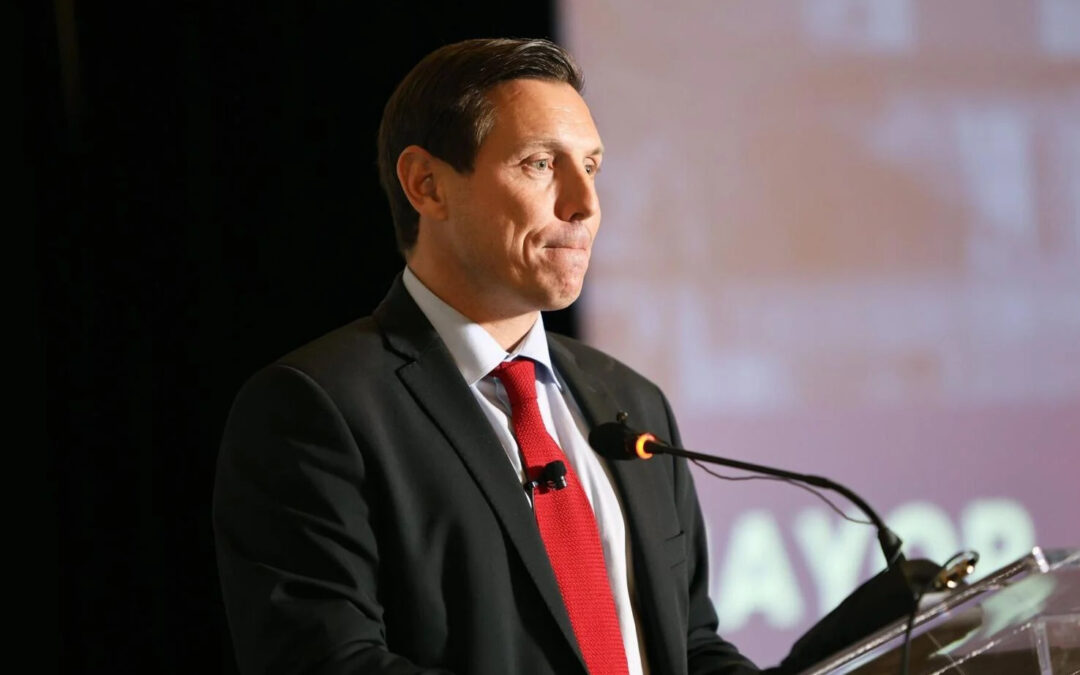Brampton Mayor Patrick Brown doesn’t believe the federal government’s decision to cap student visas is enough to fix the problems big cities are facing due to the explosion in international students seen in recent years.
On Monday (Jan. 22), federal immigration minister Marc Miller announced a two-year cap on new student visas starting in September 2024, which will reduce the number of international students granted entry to study in Canada by 35 per cent compared to 2023.
The decision comes a month after Brampton council passed two resolutions at a special meeting on Dec. 20. The first resolution sought support from the federal government for international student housing, while the second called on the province to double the “Heads and Beds” levy — which hasn’t been increased since 1987.
Just two days earlier, on Dec. 18, Brown and Sheridan College President and Vice-Chancellor Dr. Janet Morrison signed the Brampton Charter for Improving the International Student Experience, which the city said affirms its commitment to “meaningful change for International Students who choose to study in Canada.”
While pleased the federal government is now taking notice of the international student housing crisis in cities like Brampton and attempting to address it, he doesn’t think a cap on student visas alone is the right approach.
‘I hope the pause announced (Monday) by minister Miller really allows (the federal government) to recalibrate and bring in a program that has integrity when it comes to appropriate housing,” Brown said in an interview.
“What I was lobbying for was to link these visa approvals to an address. What we’re noticing in Brampton is that we have people going to academic institutions in Windsor, in Montreal, huge numbers that go to Conestoga College in Waterloo, but they live in Brampton,” the mayor added.
Illegal overcrowded student rooming houses have been a long-standing problem in Brampton and, according to Brown, the problem has only gotten worse in recent years with the influx of international students.
Rather than just a cap, Brown and council would like to see a housing plan become a basic requirement in the student visa application process, which could then be tracked to ensure visas aren’t approved for students planning to live in overcrowded and unsafe rooming houses.
Brown said a cap alone won’t help foreign students who are face a combination of unaffordable housing, extremely high international student tuition fees and limitations on the number of hours they can legally work to earn extra money while studying.
“There isn’t adequate housing, so what we end up having that is quite routine is 16 students living in a basement apartment. I think that’s wrong. International students being taken advantage of and living in third-world conditions, and it ends up being a cash cow — an ATM for these colleges,” said Brown.
“If our academic institutions are going to make huge sums of money off international students, I think it should be a basic requirement that there is a housing plan associated with it,” he said. “Right now, it’s like the wild west of visa approvals.”
Brown agrees with both the federal and provincial governments that not all post-secondary institutions are offering the same level of education, with some private institutions — which Miller described as “fly-by-night operations and back-door entries in to Canada” falling well short of adequate academic standards.
On Tuesday, just one day after the federal government’s announcement, both the Ontario and B.C. governments announced they will start cracking down on so-called “diploma mills schools.”
“There are good academic institutions, then we have other academic institutions that are sort of puppy mills for degrees, and there seems to be no academic program. The fact that we have so many students in Brampton going to schools five hours away — how are you possibly learning if you’re living in Brampton and going to school in Montreal?” Brown said. “For me that is ludicrous, and you wouldn’t believe how common that is.”
Acting Mayor John Kovac and city council in neighbouring Mississauga are taking more of a wait-and-see approach. Kovac told the Brampton Guardian that they want to see how the cap affects the housing situation.
“It is too early to speculate on the direct impact this cap may have on the local housing situation. Mississauga is committed to building more affordable housing to address the diverse needs of our residents, including students, families, and seniors,” he said.

